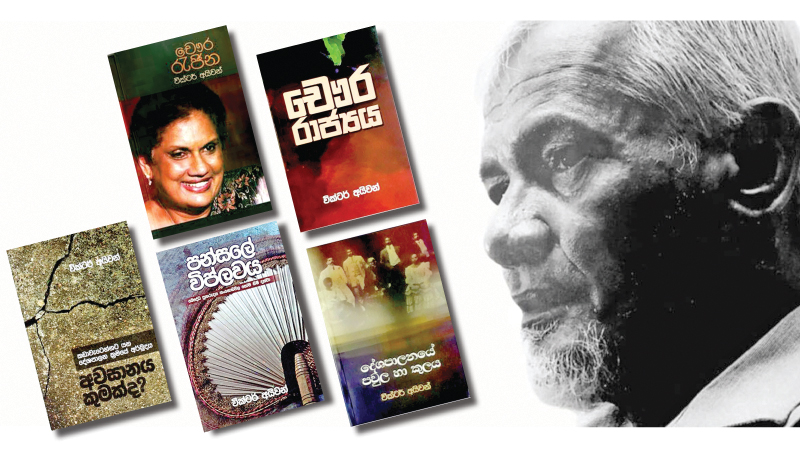Victor Ivan, the trailblazing founding editor of the Ravaya, a Sinhala-language weekly that championed press freedom and critical journalism in Sri Lanka, is no more. Renowned for his fearless voice, Victor Ivan was a towering figure in Sri Lanka’s journalistic sphere, boldly tackling issues of corruption, governance and justice.
Born in Akmeemana, Galle, into a modest background, Victor Ivan’s remarkable journey from a radical youth activist to one of Sri Lanka’s most respected editors is a testament to his unwavering dedication to truth and social justice. His political awakening came in the tumultuous late 1960s, a period marked by inequality and unrest. Drawn to leftist politics, he became associated with the Janatha Vimukthi Peramuna (JVP), earning the moniker, Podi Athula.
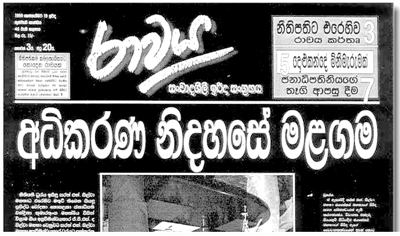 He was the seventh accused in the main court case stemming from the 1971 youth insurrection, where judges described him as the most colourful among the respondents. Convicted, he served five years in prison during which time he shifted his focus toward non-violent activism and journalism.
He was the seventh accused in the main court case stemming from the 1971 youth insurrection, where judges described him as the most colourful among the respondents. Convicted, he served five years in prison during which time he shifted his focus toward non-violent activism and journalism.
While being incarcerated, Ivan authored two books. The first, ‘The Challenge of Tenant Farming’ published in 1979, examined the feudal taxation system on tenant farming in Sri Lanka and its detrimental effects on productivity. The second chronicled the history of the JVP and the 1971 insurrection. In 1977, Victor Ivan and the other prisoners were granted unconditional pardon, marking a turning point in his life.
Groundbreaking platform
In 1987, Victor Ivan founded the Ravaya, transforming it into a groundbreaking platform for progressive thought and fearless critique. For 25 consecutive years, he served as its editor, fostering a generation of young journalists to question authority and challenge societal norms. A consummate investigative journalist, political critic, theorist, social activist and author, Victor Ivan’s contributions to Sri Lanka’s media landscape are unparalleled.
His fearless journalism extended to exposing systemic injustices, including the infamous case of Judge Lenin Ratnayake’s alleged sexual abuse of two prisoners’ wives, as documented in Prasanna Vithanage’s 2015 film ‘Silence in the Courts’. Ivan and the Ravaya’s investigative efforts revealed the failure of institutions such as the Judicial Services Commission and the Bar Association in addressing the victims’ pleas for justice. Among his many battles, his tireless campaign against the former Chief Justice of Sri Lanka, Sarath N. Silva to uphold judicial independence remains one of his most daring and significant endeavours.
Friends and colleagues remember Victor Ivan as a principled journalist whose steadfast commitment to public service redefined the role of the press in Sri Lanka. His enduring legacy as a champion of free speech and press freedom will inspire generations of journalists to come. He is survived by his wife, two children and an indelible legacy that reshaped Sri Lanka’s media and society.
Lionel Bopage – Contemporary political activist
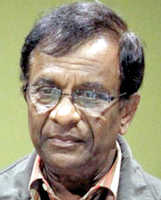 A trailblazer in investigative journalism, Victor Ivan was much more than a journalist—he was a political activist, critic, social analyst, author and a staunch advocate for shaping political leadership.
A trailblazer in investigative journalism, Victor Ivan was much more than a journalist—he was a political activist, critic, social analyst, author and a staunch advocate for shaping political leadership.
What set him apart was his participatory approach to exchanging ideas. Despite holding strong stances, he openly welcomed criticism of his own views, even from those with differing political ideologies. This openness to dialogue and self-reflection was a hallmark of his character.
Victor’s tireless commitment to his work was evident throughout his life, whether as a full-time activist of the JVP or later as a journalist and social analyst driven by unwavering passion. His contributions were profound and far-reaching, spanning activism, commentary and advocacy for political reform.
As many have noted, it would be a monumental challenge for anyone to match the breadth and depth of his work. His legacy as a political activist, commentator, journalist, and catalyst for change is unparalleled.
We take this moment to honour and pay tribute to Victor Ivan for his invaluable contributions and the positive impact he made during his lifetime.
Prof. Jayadeva Uyangoda – Political analyst
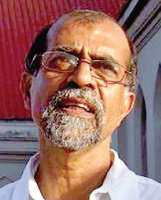 Victor Ivan has been one of the most courageous journalists of recent decades, demonstrating unwavering commitment to truth and justice. His work has bravely exposed corruption both political and bureaucratic reflecting a dedication to seeking the truth that is a hallmark of his career.
Victor Ivan has been one of the most courageous journalists of recent decades, demonstrating unwavering commitment to truth and justice. His work has bravely exposed corruption both political and bureaucratic reflecting a dedication to seeking the truth that is a hallmark of his career.
Throughout his mission, Victor has held powerful figures accountable, never sparing influential politicians, judges, or businessmen from scrutiny. One of his most remarkable qualities is his incorruptibility. He stands out as a journalist who would not tolerate corruption at any cost.
In an era when investigative journalism often devolved into mere political gossip, Victor redefined the genre. His approach to real investigations, uncovered deep-seated corruption and abuse of power, fundamentally changing the landscape of media in Sri Lanka. Through his courageous contributions and incisive political analysis columns, Victor has enriched our understanding of governance and accountability.
Even today, his influence is felt in the pages of the Sunday newspapers, where his political analysis provides serious insight into Government leadership. His talent, bravery and creativity have set him apart from his peers. Interestingly, Victor has never undergone formal journalism training, which I believe has allowed him to cultivate a unique perspective that fuels his courage and innovation.
Prof. Nirmal Ranjith Dewasiri – Academic
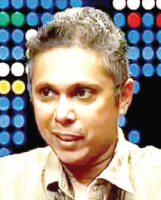 Over the past four decades, Victor Ivan emerged as one of Sri Lanka’s most iconic public intellectuals. In 1986, he founded the Ravaya newspaper during a politically turbulent time when the UNP held power and the Left and SLFP were in disarray. This created a vacuum for a legitimate political voice, which the Ravaya filled. More than a newspaper, it embodied a broad political intervention, driven by Ivan’s vision for fundamental political transformation.
Over the past four decades, Victor Ivan emerged as one of Sri Lanka’s most iconic public intellectuals. In 1986, he founded the Ravaya newspaper during a politically turbulent time when the UNP held power and the Left and SLFP were in disarray. This created a vacuum for a legitimate political voice, which the Ravaya filled. More than a newspaper, it embodied a broad political intervention, driven by Ivan’s vision for fundamental political transformation.
Following the end of the JVP’s second insurrection in 1990, Sri Lankan politics saw a conceptual shift, emphasising human rights and freedom of expression. Ivan played a crucial role in this transformation. His influence extended across landmark publications such as the Yukthiya, the Lakbima and the Ravaya as well as the Free Media Movement, fostering a new political culture.
“During this period, political parties struggled with diminishing legitimacy, while public intellectuals and non-party actors gained prominence. Ivan and the Ravaya became inseparable symbols of this shift. In 1994, he was instrumental in shaping the Podujana Eksath Peramuna. Later, during Mahinda Rajapaksa’s political ascendancy in 2004 and 2005, Ivan was a key intellectual force.
Although he continued advocating for the rule of law, his lasting impact was most profound in the political and intellectual landscape of the 1990s and early 2000s.
Prof. Sarath Wijesooriya – Academic
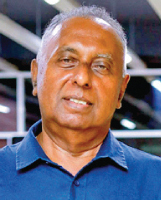 If alternative journalism in Sri Lanka has a pioneer, it is undoubtedly Victor Ivan. Through sheer determination, he built an alternative media culture and fearlessly pursued his work as a journalist. His prolific writings on the courts and the injustices faced by ordinary people are too numerous to count, reflecting his tireless commitment to justice. His energetic and fearless journalism remains worthy of praise.
If alternative journalism in Sri Lanka has a pioneer, it is undoubtedly Victor Ivan. Through sheer determination, he built an alternative media culture and fearlessly pursued his work as a journalist. His prolific writings on the courts and the injustices faced by ordinary people are too numerous to count, reflecting his tireless commitment to justice. His energetic and fearless journalism remains worthy of praise.
Unfortunately, in his later years, the very media Ivan built with integrity became entangled in politics, leading to a loss of credibility. It is disheartening to see how this tainted his legacy.
Yet, despite these shortcomings, Victor Ivan remains an iconic figure in Sri Lankan media, celebrated for his dynamic and transformative contributions to the field.
Vishaka Wehella – Journalist
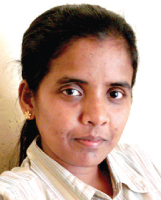 Since our school days, Victor Ivan has been a hero in the world of newspapers. The Ravaya newspaper was a beacon of hope for us, especially during the despair brought on by the 1988/89 insurrection. Both Victor and I hailed from Galle and I vividly remember visiting his house and meeting him. To our surprise and delight, he encouraged us to write to the Ravaya. It was an incredible honour and a testament to his willingness to support newcomers without hesitation.
Since our school days, Victor Ivan has been a hero in the world of newspapers. The Ravaya newspaper was a beacon of hope for us, especially during the despair brought on by the 1988/89 insurrection. Both Victor and I hailed from Galle and I vividly remember visiting his house and meeting him. To our surprise and delight, he encouraged us to write to the Ravaya. It was an incredible honour and a testament to his willingness to support newcomers without hesitation.
Known in the media as Podi Athula, we affectionately called him Athula Aiya. He was both simple and distinguished, a disciplined individual despite his revolutionary roots. Victor was approachable, warm and protective of those who worked under him. In the Ravaya newsroom, under his leadership, there was no room for misconduct, especially against women—a standard he upheld with integrity.
Victor had a unique ability to gather people who shared his vision of systemic change, offering them a space to work and thrive at the Ravaya. It was remarkable how every member of the editorial team was well-versed across all sections, reflecting his dedication to cultivating knowledge and versatility in his colleagues.
However, if there was one shortcoming, it was his reluctance to embrace the business side of running a newspaper. Even at the height when the Ravaya was at the helm, Victor didn’t focus on creating a strong market presence for it. This, perhaps, stemmed from his simplicity and his rich, knowledge-driven perspective.
Victor Ivan was not just a journalist but a visionary—a man who shaped an era while staying true to his values.”
K. Sanjeewa – Journalist
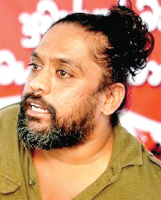 In 2013, when I assumed the role of features editor at the Ravaya newspaper, Victor Ivan served as the consultant editor. Despite his sharp and fearless critiques of the newspaper, he never interfered with or sought to halt any article. Victor shared his views and constructive criticism during the editorial meetings held every Friday, but he respected editorial independence to the fullest.
In 2013, when I assumed the role of features editor at the Ravaya newspaper, Victor Ivan served as the consultant editor. Despite his sharp and fearless critiques of the newspaper, he never interfered with or sought to halt any article. Victor shared his views and constructive criticism during the editorial meetings held every Friday, but he respected editorial independence to the fullest.
Victor Ivan was a trailblazing journalist who redefined the direction of journalism in Sri Lanka. His work was rooted in a deep commitment to uncovering the truth, prioritising facts over everything else. He fearlessly tackled complex and sensitive issues such as ethnic diversity, caste hierarchies and the supremacy of religious institutions. Victor was an unwavering advocate for judicial independence and used his investigative skills and extensive network to expose corruption and systemic failures.
He often remarked that every sector in Sri Lanka was plagued by rot and he possessed both the knowledge and vision for the reforms necessary to bring about meaningful change. With his fearless pen, he played a pivotal role in political movements, including the rise of Chandrika Bandaranaike Kumaratunga to power in 1994 and the formation of the Good Governance Government in 2005. He actively promoted these ideas without hesitation or compromise. Victor Ivan was not only a journalist but also a mentor who provided invaluable guidance to young journalists, encouraging them to work without fear. His amiable nature and willingness to nurture new talent set him apart as a leader in the field.
In my view, Victor Ivan stands as the most unique journalist of our era—an unparalleled figure whose legacy will inspire generations to come.
Gamini Viyangoda – Author and political commentator
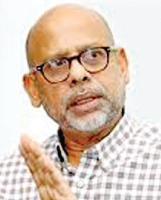 In 1971, when Prof. Jayadeva Viyangoda was imprisoned at the Welikada Prison, Victor Ivan was there as well. It was during my visits to see Viyangoda that I first met Victor. From that time onwards, I have regarded him as the most daring journalist Sri Lanka has ever produced.
In 1971, when Prof. Jayadeva Viyangoda was imprisoned at the Welikada Prison, Victor Ivan was there as well. It was during my visits to see Viyangoda that I first met Victor. From that time onwards, I have regarded him as the most daring journalist Sri Lanka has ever produced.
I had the privilege of working alongside him at the Ravaya newspaper for over 15 years. During those years, I observed many of the remarkable qualities that made Victor a veteran journalist and an exceptional editor. One of his defining traits was the complete freedom he granted to journalists under his wing. He never pressured them or interfered with their work, encouraging an environment of unrestrained expression.
Although we often had differences of opinion, Victor rarely rejected the articles that I wrote. There was only one notable exception: in 1994, when Victor spearheaded the campaign to bring Chandrika Bandaranaike Kumaratunga to power under the slogan “A Human Face to the Open Economy,” I wrote an article criticising that very slogan. Victor chose not to publish it. Later, he personally explained his reasoning to me, demonstrating his respect for open dialogue, even when he made editorial decisions.
Victor was a journalist who embodied the role of society’s watchdog. He fearlessly confronted corruption, exposed societal complexities and championed much-needed reform, often at great personal risk. Despite the threats to his life, he remained steadfast in his mission, tackling critical social issues with unwavering courage.
Victor Ivan’s life story is, without a doubt, a must-read textbook for every aspiring journalist—a testament to the power of fearless journalism and an enduring inspiration for those who follow in his footsteps.



